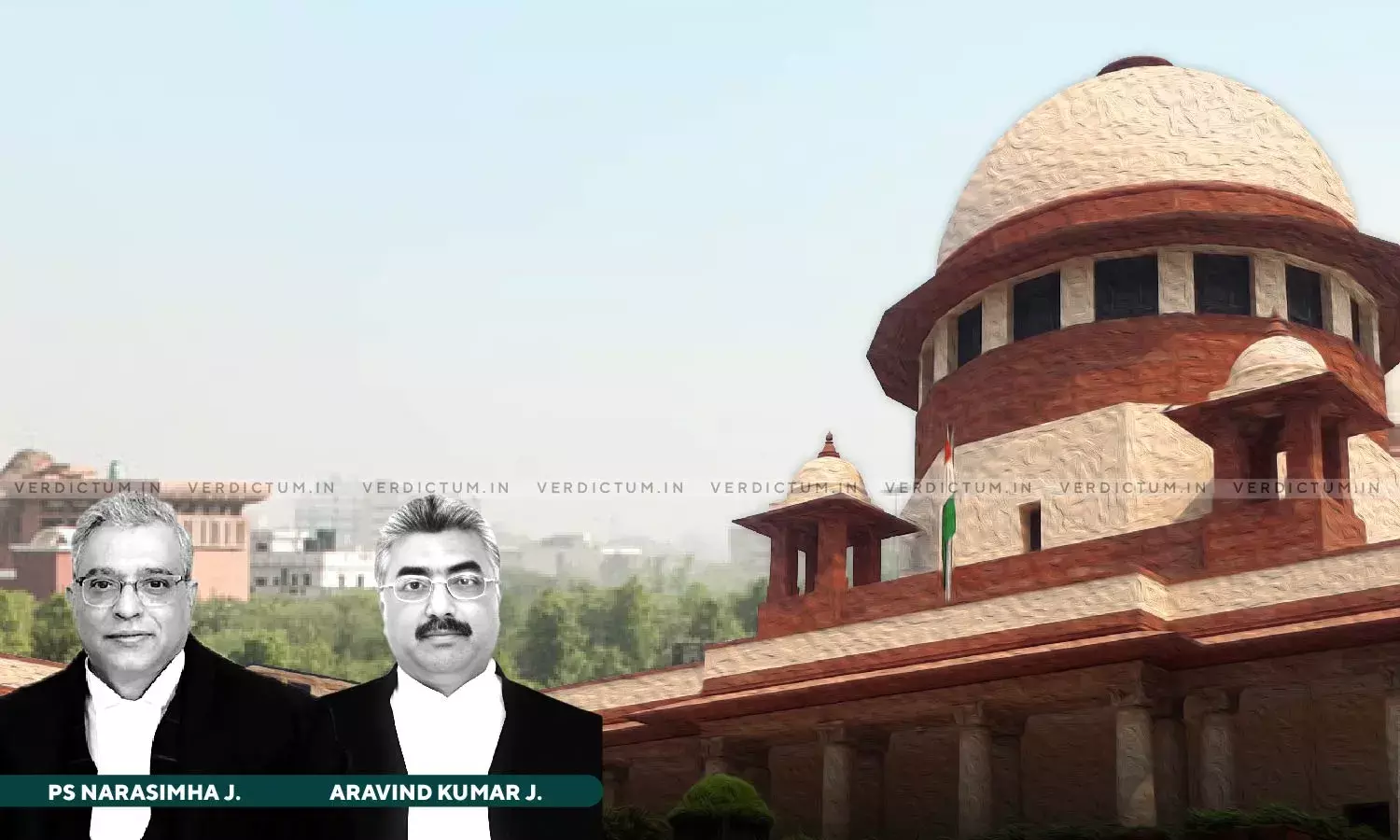Statutory Functionary Entitled To Take Defense Of Good Faith: SC Expunges Gujarat HC Observation That Protection U/S 157 CGST Act May Not Be Available To State Officials

The Supreme Court expunged the observation made in a Gujarat High Court judgment that the statutory protection under Section 157 of the Central Goods and Services Tax Act, 2017 i.e. the good faith clause, may not be available to the officers of the State.
The Court held that the good faith clause if successfully pleaded, legitimizes and protects the statutory functionary from any legal action.
The Bench of Justice Pamidighantam Sri Narasimha and Justice Aravind Kumar observed “A good faith clause in a statute will therefore be a defense. If successfully pleaded, it not only legitimises the action but also protects the statutory functionary from any legal action. If a statutory functionary invokes the defence of good faith in a suit, prosecution or other legal proceedings initiated against him, it is for the court or a judicial body to consider, adjudicate, and determine whether the claim that the action was done in good faith is made out or not. Such a scrutiny, enquiry, or examination is done only in a proceeding against the statutory functionary. This Court has held that the scrutiny whether the act is done in good faith or not would depend upon the facts and circumstances of each case.”
Advocate Deepanwita Priyanka appeared for the Petitioners while Advocate Rahul Narayan appeared for the Respondent.
The Special Leave Petition/Appeal arose out of an interim order passed by the High Court of Gujarat in a writ petition filed by the Respondent seeking a direction for protection from arrest under Section 69 read with Section 132 of the GST Act. The High Court is still examining the writ petition, but by the interim order, criticised the prolonged stay of the search party at the residence of the Respondents as unauthorized and illegal.
The Apex Court further observed, “A good faith clause, explained in the vocabulary of the rights and duties regime, can be said to be a provision of immunity to a statutory functionary. Such provisions are in recognition of public interest in protecting a statutory functionary against prosecution or legal proceedings. This immunity is limited. It is confined to acts done honestly and in furtherance of achieving the statutory purpose and objective. Section 3(22) of the General Clauses Act, 1897 best explains ‘good faith’ as an act done honestly, whether it is done negligently or not. Good faith clauses in statutes providing immunity against suits, prosecution or other legal proceedings against officials exercising statutory power are therefore limited by their very nature, that far, and no further. The scope and ambit of good faith has been explained in a number of decisions of this Court, which need not be elaborated herein again.”
The Court also reiterated that a citizen of this country has a right of accountability, for which he is entitled to initiate and adopt such legal remedies as are available to him, and in such proceedings, the statutory functionary is equally entitled to take a defence of good faith and it is for the court to adjudicate and decide.
Accordingly, the Court expunged the relevant paragraph and disposed of the appeal.
Cause Title: The State of Gujarat & Anr. v. Paresh Nathalal Chauhan (Neutral Citation: 2024 INSC 277)
Appearances:
Petitioners: Advocate Deepanwita Priyanka
Respondent: Advocates Rahul Narayan and Harshita Malik

